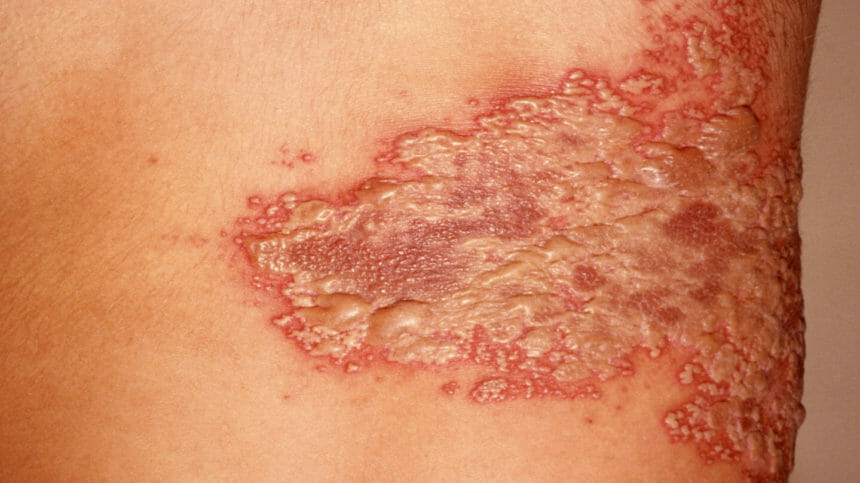
Adult exposure to varicella, or chickenpox, is thought to boost shingles immunity. But a United Kingdom study finds that this effect may not be fully protective or long-lasting.
Among more than 9,000 adults followed, those who were exposed to a child with chickenpox are about 33% less likely to develop shingles (herpes zoster) over a 20 year period, investigators found. The average age of exposure to chickenpox was 38 years, and the average age of shingles diagnoses was 41 years.
Between 10 and 20 years after exposure, the protective effect appeared to wane slightly. At that point, adults were 27% less likely to develop shingles.
Exposure assumes complete immunity lasting between 2 and 20 years, but this may not be the case, concluded Harriet Forbes, from the London School of Hygiene and Tropical Medicine, and colleagues.
Unlike the United States, the U.K. does not routinely vaccinate children against chickenpox. The idea is to keep the virus in circulation, in part to protect older adults from contracting shingles in later life by boosting their immunity, wrote Forbes. Shingles symptoms can cause lasting pain and other long-term health complications.
The researchers say their findings suggest that the U.K. policy may benefit from a second look.
In the U.S., about 1 in 3 people will develop shingles during their lifetime, according to the Centers for Disease Control and Prevention. Adults who had chickenpox as children and adults over age 50 are especially vulnerable.
The study was published in The BMJ.




